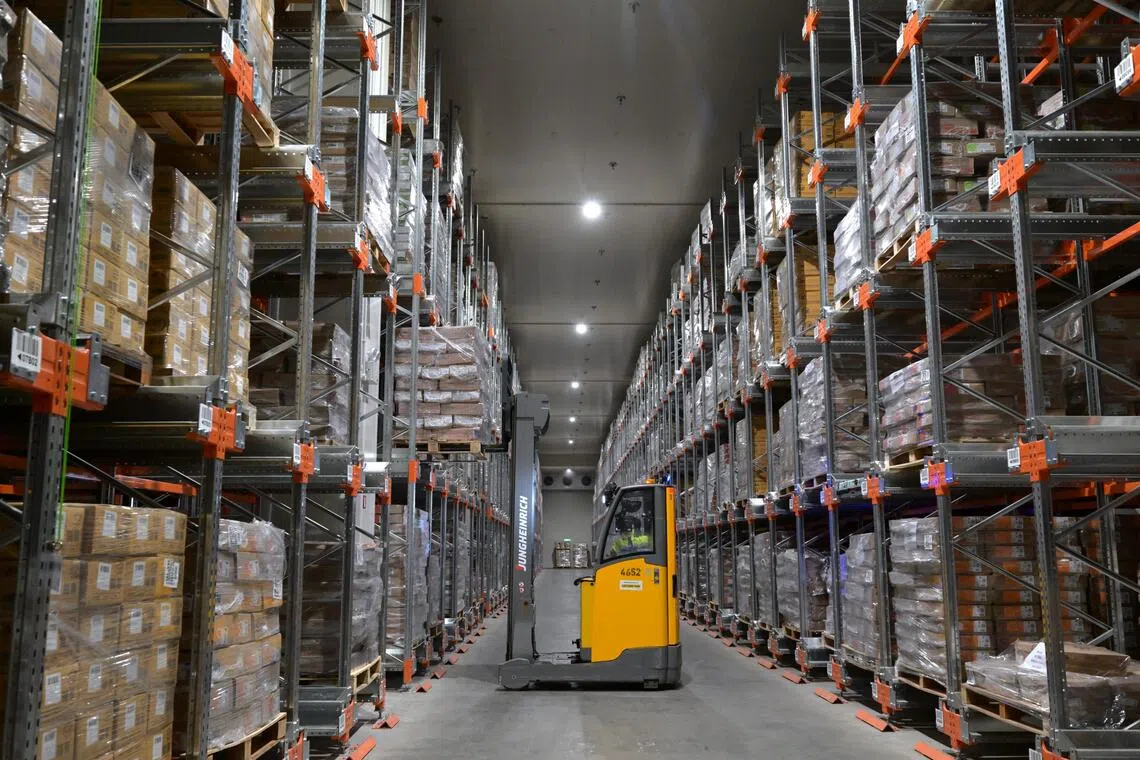Singapore’s food stockpiles not meant to influence food prices: Zaqy
Sign up now: Get ST's newsletters delivered to your inbox

Food stockpiling is one of the pillars of Singapore’s food security strategy to ensure food resilience here.
ST PHOTO: NG SOR LUAN
SINGAPORE – Food stockpiles maintained by Singapore are meant to safeguard the country’s food security and not influence food prices, Senior Minister of State for Sustainability and the Environment Zaqy Mohamad said in Parliament on Nov 6.
The stockpiles of essential food items are meant to serve as a buffer in times of food supply disruptions, he said in response to Ms Hany Soh (Marsiling-Yew Tee GRC), who asked about the use of stockpiled food to mitigate any spikes in food supply prices.
Food stockpiling is one of the four pillars of Singapore’s food security strategy to ensure food resilience here, alongside import diversification, local production and global partnerships, Mr Zaqy said.
Currently, by law, Singapore requires only rice to be stockpiled.
However, the country also keeps stockpiles of a range of items, including frozen protein and canned vegetables. Alternative proteins, such as plant-based or cultivated meat, are not part of these food reserves, he added.
Ms Soh had also asked if the Government will consider using the stockpiles to mitigate the operating costs of merchants and hawkers.
“There has been feedback that there has been a sudden surge in some protein items, like chicken, which as a result has caused them to deliberate whether to transfer this cost to consumers,” she said, adding that this could raise the cost of living.
In response, Mr Zaqy said stockpiling and concerns over costs are two separate issues.
“We should distinguish between stockpiling and price mechanisms for food and other supplies because we should not then mess around with our stockpiles to try to influence food prices across Singapore,” he said.
“Our stockpiles are not meant to be a mechanism to influence food prices, not to find ways to flood the market so that prices of chicken or other meats come down.”
Other MPs also posed questions on how Singapore’s stockpiled food is managed – such as how it is replenished or drawn down, and how food waste is managed.
Mr Zaqy said the Government works closely with the private sector to ensure the stockpiled food is safe for consumption while minimising food wastage.
“The Government works closely with the private sector to optimise our stockpiling operations, including to ensure proper storage conditions and conduct regular churning to ensure that the stockpiled food is safe for consumption while minimising food wastage,” he said.
There are also occasions where the food may be channelled to food donation drives, he added.
However, certain details pertaining to food stockpiling cannot be revealed due to national security concerns, Mr Zaqy said.
“Because our stockpiles are really in consideration of not just the disruptions that could occur in the short term, such as pandemics or other forms of disruption, but also long-drawn situations where you have situations such as war blockades and other matters,” he added.
Mr Zaqy said that food stockpiling helps to counter disruptions brought about by factors such as climate change, pandemics and geopolitics.
Keeping stockpiles of staples can help to safeguard the Republic from supply chain disruptions, which can be caused by erratic weather patterns due to climate change, for instance.



